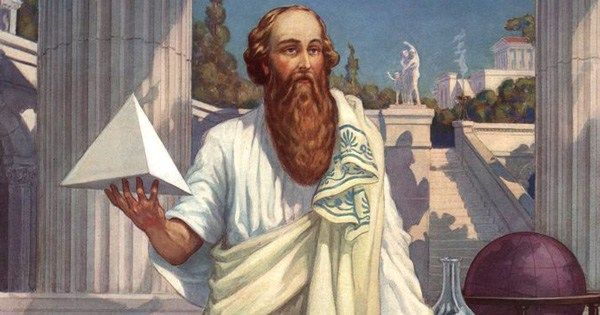
Intro:
At first glance, mathematics and philosophy may seem like entirely separate disciplines. However, upon closer examination, one finds that these two fields are intricately intertwined, sharing a profound connection that has shaped human thought and understanding throughout history. This blog delves into the fascinating intersection of mathematics and philosophy, exploring how they complement and enrich each other, ultimately shedding light on the nature of reality, knowledge, and truth.
The Language of the Universe
Mathematics has long been revered as the language of the universe, a precise and elegant means of describing the natural world. From the earliest civilizations to modern times, philosophers have grappled with the question of why mathematics is so effective in explaining the physical realm. This inquiry has given rise to diverse philosophical perspectives, ranging from Platonism, which views mathematical objects as abstract, eternal entities, to empiricism, which sees mathematics as a tool for describing and predicting observable phenomena.
https://plato.stanford.edu/entries/mathphil-induc/
The Quest for Certainty
One of the central preoccupations of both mathematics and philosophy is the pursuit of certainty and truth. Mathematicians strive to construct rigorous proofs and axioms, establishing a solid foundation for their theorems and theories. Philosophers, on the other hand, have long debated the nature of knowledge, grappling with questions of epistemology and the limits of human understanding.
https://www.iep.utm.edu/cert-pri/
The Foundations of Logic
Logic lies at the heart of both mathematics and philosophy, providing the rules and frameworks for valid reasoning and argumentation. From Aristotelian logic to modern symbolic logic, the development of logical systems has profoundly influenced both disciplines. Philosophers have explored the nature of logical reasoning, while mathematicians have employed logic as a powerful tool for constructing proofs and advancing their field.
https://plato.stanford.edu/entries/logic-classical/
The Infinite and the Infinitesimal
The concepts of infinity and the infinitesimal have captivated philosophers and mathematicians alike, challenging our intuitions and pushing the boundaries of human understanding. Philosophers have grappled with the metaphysical implications of these concepts, while mathematicians have developed intricate theories and calculus to grapple with the infinite and the infinitesimally small.
https://www.britannica.com/science/infinity-mathematics
The Beauty and Elegance of Mathematics
Both mathematicians and philosophers have marveled at the beauty and elegance inherent in mathematics. Philosophers have pondered the aesthetic and artistic aspects of mathematical truths, while mathematicians have celebrated the elegance and simplicity of their theories and proofs. This shared appreciation for the beauty of mathematics has fostered a deep respect and admiration between these two disciplines.
https://www.scientificamerican.com/article/the-art-of-mathematics-by-jerry-p-king/
Conclusion:
The relationship between mathematics and philosophy is a rich tapestry woven from threads of logic, truth, beauty, and the relentless pursuit of understanding. As we continue to explore the depths of these disciplines, we uncover new insights into the nature of reality, knowledge, and the human mind. By embracing the synergy between mathematics and philosophy, we can unlock new realms of discovery and deepen our appreciation for the profound mysteries that underlie our existence.